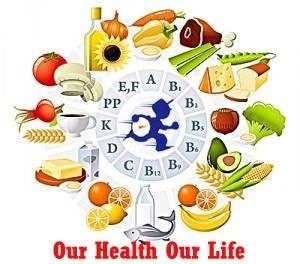If the baby food is insufficient or defective, baby will be suffering from malnutrition. So, baby needs balanced diet and nutritious food to be healthy and grow up naturally. When you selecting baby food, you must be noted the most important aspect, such as his age, his activity, fitness, etc.. The child can be fed only breast milk for the first six months of life. Not to give only breastfeeding, complementary feeding will have to start between 4 and 6 months.
Keep in mind that early entry of any of these foods include some drawbacks, as is in the case of allergies. So if there is a history of allergies in your family, you should consult your pediatrician.
Among pediatricians may be minor variations on the date of introduction of a food, but always must fall between those considered suitable for the baby.
Baby food for 1 to 12 months old baby:
Food in the first month of baby.
- Exclusive breastfeeding.
- During the first week of life offered to baby 8 feeds a day of 60-90 ml, 14%, ie with 2-3 shallow steps of formula adapted home. You can start with smaller amounts and gradually increase to the desired level by weight of the child.
- In the following weeks the volume is increased to 90-120 ml, which means privates 3-4 scoops of formula 7-8 times daily (depending on the night rest).
The approximate weekly gain weight during the first month of life will be 200-250 gm.
[ads]
Food during the second month of baby.
- Exclusive breastfeeding.
- If you take formula adapted home as the only food the volume is 120 ml per initially taken and will increase to 130-150 ml according to the child’s appetite. 7 output will be offered daily. She did not force the child to bottles runs out.
Food for 3 month old baby.
- Exclusive breastfeeding.
- If the mother returns to work and wants to continue exclusive breastfeeding have several alternatives:
- Extraction and preservation of milk in the workplace: the mother is extracted with a breast pump milk in your work schedule and then when he comes home with the child and this gives all the shots you can. The person in the care of the baby, will supply the milk extracted from the mother during working hours, while the mother is away. The expressed milk should be stored at the temperature and in suitable containers.
- There is also the possibility that a family bring the baby to work so that the mother can nurse or the mother to leave work to do and at home and in a nursery nearby.This option should already calibrated during pregnancy, looking at the company measures that best suit the schedule, job type and desires of the nursing mother.
- If the mother returns to work and wants to continue with breastfeeding but do not want or can not express milk, you can use bottles adapted formulas for those shots where you are in your workplace.
- Taking formulas adapted the approximate volume of milk will be between 150 cc and 180 cc per shot 5-6 times daily.
The weekly weight gain in this period will be 175-200 gm.
Food for 4 month old baby.
- Exclusive breastfeeding.
- If adapted formula is taken, it will still start formula, and a volume between 150- 180 ml per feeding (4-5 times daily).
- At this age you can start the introduction of complementary feeding, but most recommended is expected to 5th month and never wait beyond the 6th month as breastfeeding or formula milk after the 6th month, do not allow the nutritional contribution suitable.
- If you start complementary feeding in the 4th month is best to do so with pureed fruit.
- If the child is constipated is advisable to give orange juice freshly squeezed and lowered by half with water, beginning with a teaspoon to gradually increase with age and bowel tolerance.
Food for 5 month old baby.
- Breastfeeding.
When you start complementary feeding, offer the child the breast first and then the rest of the food. Return to offer the breast at the end of the meal.
While the baby drill four breastfeeds not need other dairy foods such as yogurt, cheese and other milk in porridges or purees.
The grains can be prepared with milk, water, broth or add a fruit porridge. No need to give them a formula. - From this old bottles must be prepared with milk adapted below: 180-240 cc / decision (4-5 times / day) prepared in the same way (1 scoop space per 30 ml of water).
- From the fifth month, as a general rule, you must start complementary feeding.
- Make sure the milk supply is not less than 500 ml / day to ensure adequate intake of calcium and protein minimum necessary for growth.
- Between food and food to enter, it is convenient, wait 4-7 days for the child to get used to each food completely and to warn that food produced intolerance or allergic reaction.
- It usually starts with cereal gluten and then follow with fruit porridge.
- If you reject any food, not stress and reintroduce it after one or two weeks.
- Solids should be offered with a spoon. Allow the child to experience eating with your fingers first and then with the spoon.
Cereals without gluten.
- Prepare the bottle of milk normally (Ex. 180 cc of water with 6 scoops of milk) and add the grain scoops, starting with 2 or 3 scoops and gradually increase to increase consistency to mush (6-7 scoops of cereals) .
- Replace with cereals making breakfast or dinner.
- Do not add cereal when water is still boiling, as well as mixed worse, they may lose some nutritional properties.
- Existing commercial preparations of porridge is appropriate to initiate its introduction a single cereal grain such as rice, corn, soy or tapioca that cause fewer allergies.
- Cereal foods have a higher energy value than bottles and a slower absorption, so in children hunger is delayed, allowing the spacing between shots, so shots are every 4 hours instead of 3.
Fruit porridge.
- The begin a few days after entering cereals, substituting as a general rule making snack. The fruit should be peeled and, having removed the seeds.
- You can start with juice to go with a whipped porridge made with ripe banana, apple and pear that orange juice is added. 2 or 3 pieces of fruit for each collection.
- Once you have tolerated the above will go on introducing all kinds of fruits, although we must avoid, past the first year of life, some allergenic frutas potencialmente like strawberry, melon, raspberry, blackberry and peach.
- To prepare fruit porridge is not necessary to add milk, but in some cases and for its acceptance by the child, can be added to a bottle with 60 cc of water and 2 scoops of milk, and even if you do not accept You could also add 1 or 2 scoops gluten-free cereal smoothies with fruit slices.
Eating schedule for 5 month old.
Breakfast (8:00): Bottle porridge or gluten-free.
Lunch (12:00): Bottle.
Snack (16:00): Bottle or pureed fruit.
Dinner (20:00): Bottle or porridge.
Late night snack (24:00): Bottle. It is not required, only if the child asks.
NOTE: Remember that during the 5th month one of the shots (breakfast and dinner) for the porridge is replaced.
Food for 6 month old baby.
- In this age we introduce the chicken and vegetables.
- It is best to vary the combination of vegetables every day to keep the child gets used to the same flavor and bored.
- The mash prepared with these ingredients replaced making food.
- The introduction of vegetables was initially made with vegetable broth, to test tolerance and start diversifying flavors and then the give in the form of purees.
- We begin with vegetables such as potatoes and carrots, continuing celery, leek, pumpkin, zucchini, onions, green beans and tomatoes. Subsequently all kinds of vegetables are added EXCEPT spinach and beets, which should only be inserted after the first year of life because they are high in nitrates.
- They should also avoid causing air vegetables like cabbage, cauliflower, etc.
- It is advisable to add to this puree dessert teaspoon (5 ml) of crude olive oil.
- By contrast NEVER will add salt.
Eating schedule for 6 month old.
Breakfast (8:00): Bottle porridge or gluten-free.
Lunch (12:00): Porridge chicken with vegetables.
Snack (16:00): Pureed fruit.
Dinner (20:00): Bottle or porridge without gluten.
Late night snack (24:00): Bottle minimum contribution of milk. 500 ml / day.
Food for 7 & 8 month old baby.
- From 7 months introduce two new foods:
- Cereal foods with gluten.
- Different meat chicken vegetable porridge.
Cereals containing gluten.
These grains contain a protein compound called gluten intolerance may result in many children, the most serious disease celiac disease. Cereals containing gluten are wheat, rye, oats and barley. It is therefore not advisable to give the child food that may have gluten, such as bagels, bread, biscuits, etc.
Assorted meats.
We had started with the chicken at 6 months, which is a lighter and easier to shred flesh from now it will alternate with veal and lamb later. The amount will be 40-80 gr., Baked (not fried in oil) or boiled. All this added to the broth / vegetable puree, and always without adding salt.
Eating schedule for 7th-8th month old.
Breakfast (8:00): porridge cereals with gluten.
Lunch (12:00): Puree vegetables with meat (chicken, beef or lamb).
Snack (16:00): Pureed fruit.
Dinner (20:00): Porridge cereals containing gluten.
Late night snack (24:00): Bottle (if requested by the child).
Remember to ensure a supply of milk 500 ml per day.
Food for 9 to 12 month old baby.
[ads]
Whitefish.
From 9 months or even a few days earlier if there have been no other food intolerances, we recommend the introduction of the fish, which often replaces making dinner. You must prepare cooked without salt and always starting with white fish have less fat and potentially less allergenic. Add 50? 70 grams of cooked hake and sole in a vegetable broth.
They could add 2 or 3 scoops of milk to complete daily dairy intake (try these combinations to know what he likes your son.)
Fish using 3 or 4 times a week.
Assorted meats.
In addition to chicken, beef or lamb, we will be introducing other more fat meats like pork, rabbit, trying to remove grease (leave only lean), in an amount between 70? 100 gr.
Yolk.
Start with cooked, soft (passed through water) or grated hard and yolk 2-3 times a week, adding to mashed vegetables with meat or fish, being careful to offer it gradually, initially quarter, half and next week Later whole. NOT give the whole egg (as the egg white contains a highly allergenic protein that should not be introduced until after the year of age).
Power Scheme 9th-12th months.
Breakfast (8:00): Porridge cereals containing gluten (250 ml).
Lunch (12:00): All kinds of vegetable purees soups with meat (chicken, beef, lamb), white fish or cooked egg yolk. For dessert a piece of fruit.
Snack (16:00): 2 pieces of fruit or pureed fruit. It can also give you an unsweetened yogurt (but preferably fruit).
Dinner (20:00): Same food (usually given the fish at night).
Late night snack (24:00): Bottle (if requested by the Child).
Should ensure a supply of milk 500 ml per day.
Food for baby after the twelfth month old.
From year of life can make certain changes and new foods in the diet of our child:
Cow milk.
Although it is advisable to continue using formula milk until 2 or 3 years of life (optimal nutrients and vitamins) from year of life could begin to give normal cow’s milk, semi initially and then whole.
Since we introduced the normal cow’s milk, there is no objection to other dairy products like yogurt, custard, cheese help us complete the daily 500 ml daily dairy intake, ensuring the amount of calcium you need our son for his development and growth.
Note that: a yogurt or custard 100g equivalent to about 125 cc of milk.
Vegetables.
Add the vegetable broth with meat, and always taking away the skin before crush (chickpeas, lentils, white beans …). His administration must be very gradual and progressive (1-2 times per week). From 18 months can be given with skin.
Whole egg.
No more than 2 or 3 times a week, preferably boiled or tortilla.
We must never give raw egg (eg add in the soup, because it is digested less than 50% and the risk of transmitting infections such as salmonella runs).
General recommendations.
- From the year should be leaving small pieces to go chewing and encourage the development of their dentition.
- Do not force feed the child.
- We recommend reducing sugar content in foods, do not add sugar to fruit juices, not to favor the development of caries.
If the fluoride content in water is very low is advisable to administer fluoride supplements that vary by age.
You can also read this post to know more: Child nutrition







